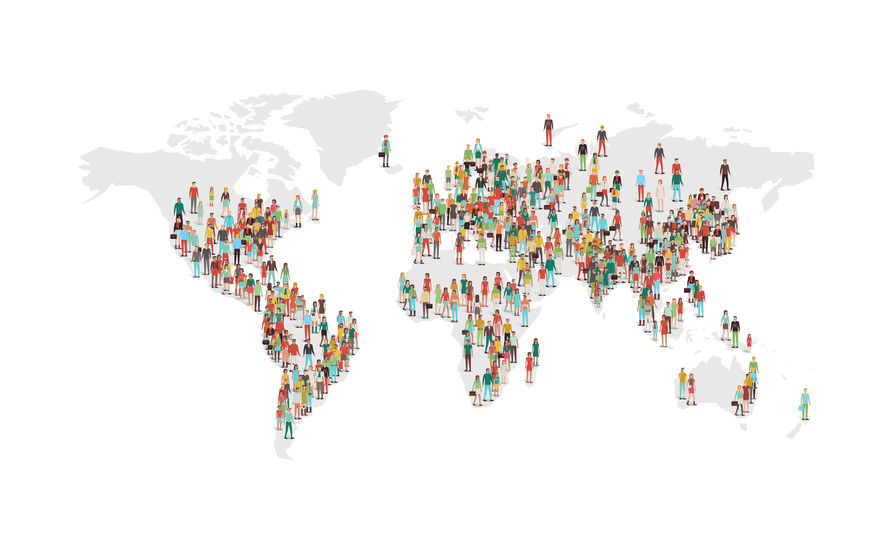Overpopulation: What Causes It, Why It Matters, and What Can Be Done About It
April 16, 2019
Overpopulation is one of biggest issues our planet faces. Overpopulation is more than just having too many people living in one place. It’s several factors all together that many predict will kill off the Earth far too soon.
How Many People Can The Earth Withstand?
Everyone is aware that our environment is threatened. The first thing that comes to people’s minds when they hear this is climate change, which isn’t completely incorrect, but it isn’t the only problem Earth is faced with. Overpopulation is just as big of a deal as climate change and possibly even a bigger issue, considering the rapid rates at which it is occurring.
The planet already has more than 7 billion people living on it. Scientists have calculated that Earth’s capacity can only go as for as 9 to 11 million people. We’re dangerously close to that maximum number, and Earth technically isn’t even in its prime time.
Lack of Resources
People must take the fact that the Earth doesn’t have enough capacity for us with our growing population into serious consideration. Deforestation is doing more than stripping away animals’ homes. It’s causing greenhouse gases to rapidly increase.
Forests help us survive. They give people food and substances to make medicine from, yet they cover less than 30 percent of the entire planet. Along with that, the soil we need for planting isn’t as fertile as it used to be. Arcadia Power, a clean energy provider in Washington, D.C., states in a blog post, “Clearing a forest also causes runoff into the water. The soil carries away nutrients and may pollute the water with agricultural chemicals. This would certainly happen if the forest is replaced with farm land.”
With all the deforestation for more cities and houses, we’re running out of room for farms, which are our main source for resources. But by putting farms there, we’re killing the land off because it’s not the right setting or placement. The trees don’t need to be cut down.
Water
Our Earth is made up of 70 percent water, but barely 2 percent of that water is actually drinkable. (Every other water source is ocean-based or not usable for various reasons.) Most of our freshwater is frozen in glaciers and ice caps, only giving us easy access to 1 percent. With very few places to get water and the rapidly growing population, Earth isn’t being given enough time to replace and replenish its freshwater through the natural water cycle. People are consuming it way too fast for Earth to catch up.
Immigration
Another issue that needs to be looked at is immigration. People want to move to different countries for better opportunities, but when that happens those countries become overcrowded and eventually overpopulated. It doesn’t matter what one’s views are on immigration. According to Renewable Resources Coalition, “Unchecked immigration into countries may lead to overpopulation to the point where those countries no longer have the required resources for their population.” The facts are that when someone moves away from their country because its overpopulated, their moving contributes to the exact same problem they wanted to avoid in the first place.
Ways to Prevent Overpopulation
There are ways to help reduce and ultimately stop the problem. People need to be more educated about having kids. People having big families and not being able to support them puts them in poverty and contributes to overpopulation. It’s not like every country needs a one-child rule like China, but there has to be a way to warn people.
Researchers say that in the future, people will have to have smaller families because resources will be low and prices for those resources will mostly likely increase over time. Fertility must drop below replacement level in order to stabilize the world population, according to a UN report.
From the looks of it, the resources that we have today are going to be rarer in the future. It’s time to start stocking up and being prepared for the long ride ahead.


